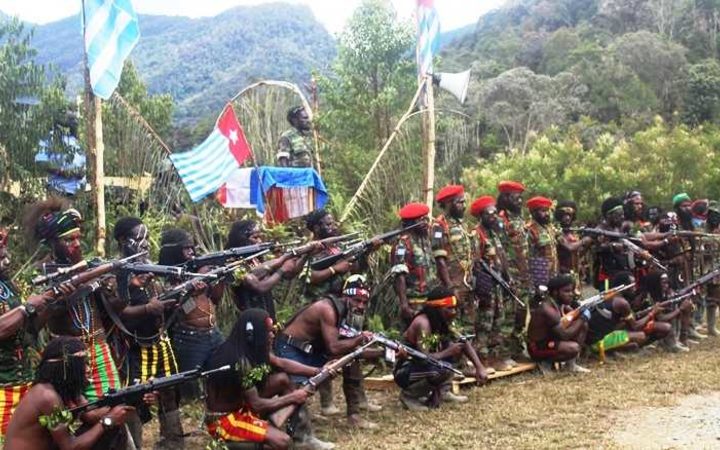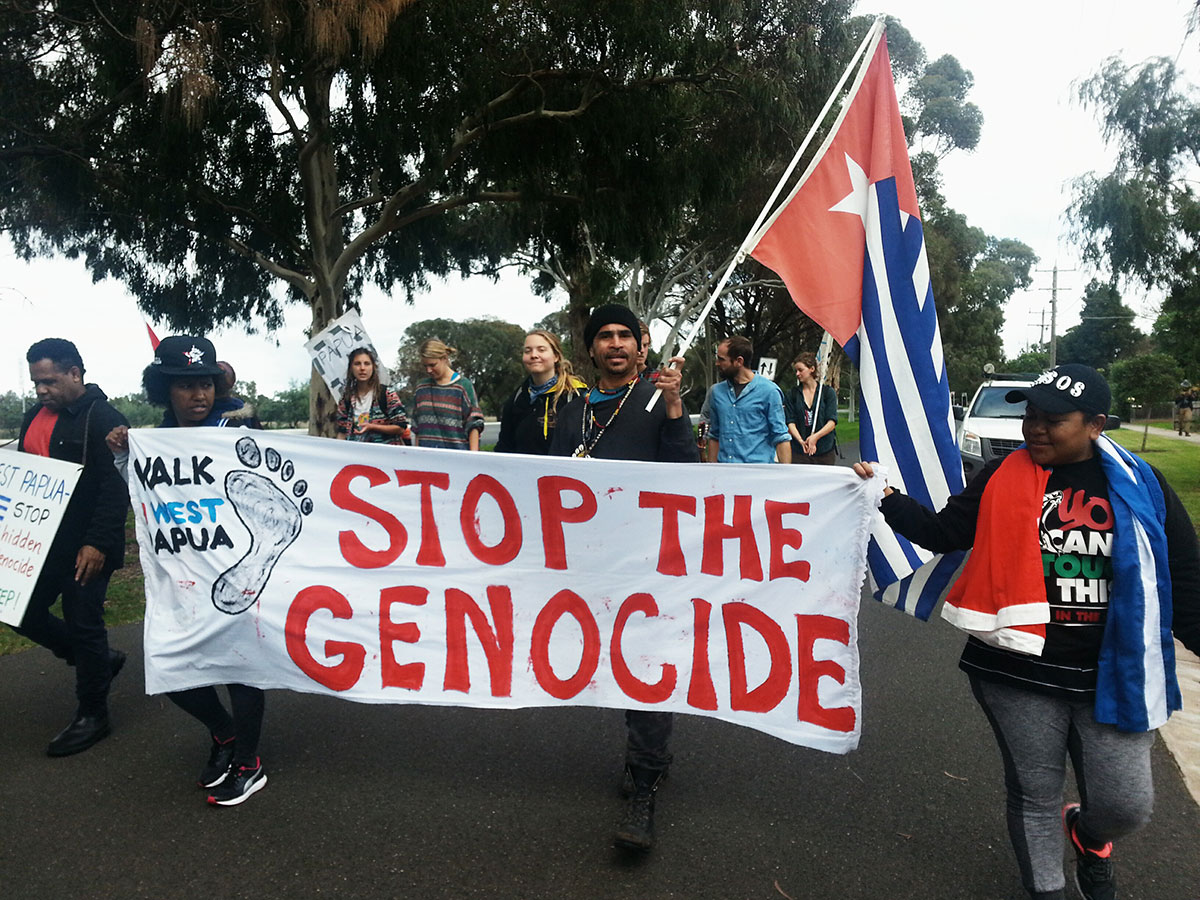“A Slow Genocide” of the West Papuan People
Written by Bianca Curtin
In 1969, the United Nations made the ultra controversial decision to sanction Indonesian annexation of New Guinea’s western half, West Guinea, following a mandated plebiscite conducted by Indonesian forces, which has been widely recognized for its intentionally undemocratic nature. Six years prior, Indonesia invaded West Papua — merely two years after the nation was officially declared independent. In the decades since, separatists of the Free Papua Movement (OPM) have maintained insurgent operations at a relatively subtle level, due to Indonesia’s criminalization of independence advocacy and legal classification of separatists as terrorists. For an individual to so much as fly the West Papuan Morning Star flag can incur them a prison sentence of up to fifteen years. The chief demand of OPM activists: a fair referendum, in which all West Papuans would be granted to freedom to vote for or against their independence as a nation.

Since the annexation in 1969, upwards of 100,000 indigenous peoples have been killed, by means of homicide, violence, starvation, and disease — though estimates place the true number much closer to half a million. The West Papuan population has thus experienced almost zero population growth since the early seventies, as compared to Papua New Guinea, that has grown over five-fold in the same duration. This violent oppression has coincided with Indonesia’s efforts to replicate the euro-colonial structures of previous occupations in the territory. Via copious financial incentives, authorities have drawn hundreds of thousands of Indonesian migrants to West Papua, diluting the already diminished Native population in such a way that places them as minorities in their own nation. Today, about 50% of the region’s population is composed of non-indigenous peoples, most of whom are Indonesian. This has been coupled with vehement efforts to replace Christianity with Islam as the dominant religion of the land, yet another means of advancing the erosion of West Papuan culture. Forced migration of tribal peoples from their highland settlements to coastal areas has also furthered Indonesia’s imperialist regime, wherein authorities are more able to control Native populations, through both rampant policing and malaria outbreaks. These aspects have collectively served as a “slow genocide” of West Papuan peoples.
